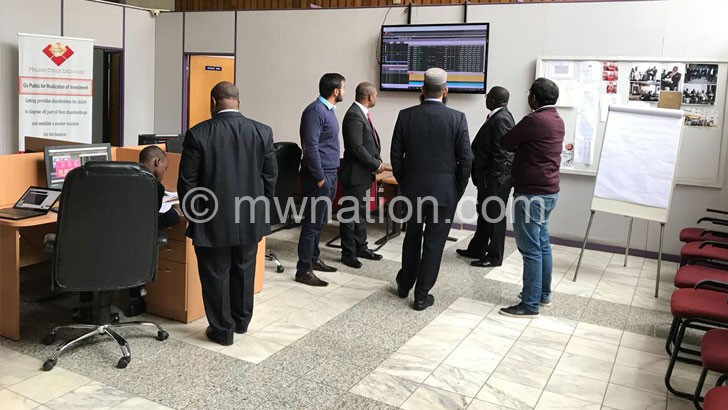Five counters push down MSE, report shows
The 16-counter Malawi Stock Exchange (MSE) moved into a negative territory in October, registering a negative return on index of 0.22 percent, a monthly report shows.
This is despite the bourse registering an increase in both volume and value of traded shares.

The MSE Monthly Market Performance Report for October shows that the Malawi All Share Index (Masi), the overall measure of local shares market performance, dropped from 41 550.15 points in September to 41 458.37 points in October this year.
MSE has attributed the negative return on index to price losses in five counters, namely NBS Bank plc by 8.34 percent, Airtel Malawi plc by 4.20 percent, TNM plc by 0.26 percent, FMB Capital Holdings by 0.14 percent and Sunbird Tourism plc at 0.01 percent.
During the period under review, the market transacted 163.03 million shares, raising K6.3 billion in 274 trades, a rise from 101.59 million shares valued at K2.4 billion in 382 trades the previous month.
Reads the report in part: “Daily average share trades exhibited similar trends where the market registered an average daily volume of 8 151 906 shares compared to 4 617 947 shares traded in September, reflecting an increase of 76.53 percent.”
The report further shows that market capitalisation decreased in both kwacha and dollar terms from K2.256 billion ($2.763 million) to K2.251 billion ($2.757 million).
In earlier interviews, market analysts said a slow MSE performance is expected given the general economic slowdown due to the Covid-19 pandemic.
But MSE operations manager Kelline Kanyangala in an interview yesterday said despite the decline, the market outlook remains positive.
She said that as of October, the return on index at 27.99 percent remained above inflation, giving a positive real return to investors.
Kanyangala said: “We are aware that there could be inflationary pressures that could lead to increase in interest rates, which subsequently results in re-allocation of assets from equity to money markets which could then suppress equity prices.
“However, we are confident that the policy stance taken by monetary authorities which aims to support economy will assist.”





